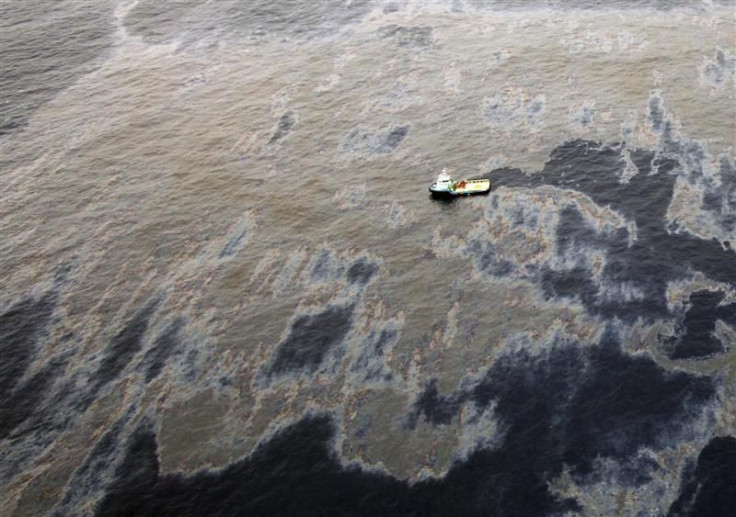Chevron Risks $22B As Brazil Files New Oil-Spill Suit

Brazil is seeking $22 billion in environmental reparations from Chevron Corp. (NYSE: CVX) and Transocean Ltd. (NYSE: RIG) for a collection of oil spills equaling less than 1 percent of BP PLC's Gulf of Mexico disaster in 2010.
The companies face a second civil lawsuit that doubles the amount they may have to pay for two oil leaks into the Atlantic Ocean off Brazil's coast.
Chevron, the second-biggest U.S. oil producer, and drilling-rig operator Transocean are already facing an $11 billion suit over the spill of 2,400 to 3,000 barrels of oil offshore of Rio de Janeiro state last November. Now, Brazilian prosecutor Eduardo Santos de Oliveira is seeking an additional $11 billion for a much smaller leak discovered at Chevron's Frade project on March 4.
The oil spill at the Frade field hasn't been contained, Oliveira was quoted by Bloomberg News as saying. The damages to the environment and to Brazil's natural resources are incalculable at this point.
In November, a spike in pressure at one of Chevron's wells caused a fissure in the seabed, allowing oil to leak from the cracks.
A month ago, a new oil seep in the same vicinity as the first was reported by Chevron to Brazilian authorities. The San Ramon, Calif., company estimates just one barrel of oil escaped from the ocean floor and an additional two more barrels of oil have been captured underwater.
Chevron said the oil that leaked in March isn't from the same source that leaked last year.
The filing of the second lawsuit is another in a series of outrageous actions brought by the same district attorney who previously filed both a criminal and civil case, all of which are without merit, Chevron spokesman Kurt Glaubitz said. He called the amount of damages requested arbitrary and said it has no legal and factual basis.
The company is increasingly embattled in Brazil as its chief of operations in the country and several other employees face criminal charges for their role in the November oil spill.
Transocean's chief of operations in Brazil has been barred from leaving the country. In all, 17 employees from Transocean and Chevron face charges. Each has to post $550,000 bail, and each company will have to set aside $5.4 million to pay for future fines.
The employees could face as much as 31 years in prison. Brazilian prosecutors are seeking to prevent Chevron from transfering profits from Brazil back to the United States and are attempting to halt operations at the Frade oil field, Bloomberg News reported.
Prosecutors said Tuesday they will announce soon which court will hear the criminal charges against the company.
Brazil's state-controlled oil and gas producer, Petroleo Brasileiro SA (NYSE: PBR), or Petrobras, holds a minority stake in Chevron's project and therefore could be liable for 30 percent of the damages sought from the initial lawsuit following the November spill.
Brazil is experiencing an offshore energy bonanza, and is estimated by the U.S. Geological Survey to hold as much as 36 billion barrels of oil locked in the Santos Basin, where Chevron is drilling. The legal standoff has led to fears that Brazil could cool the industry's willingness to help develop the country's resources.
Shares of Chevron closed down $1.54 to $105.60 on Wednesday while Switzerland-based Transocean lost 3.3 percent, closing at $52.18.
© Copyright IBTimes 2025. All rights reserved.





















